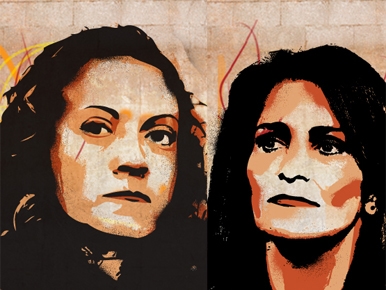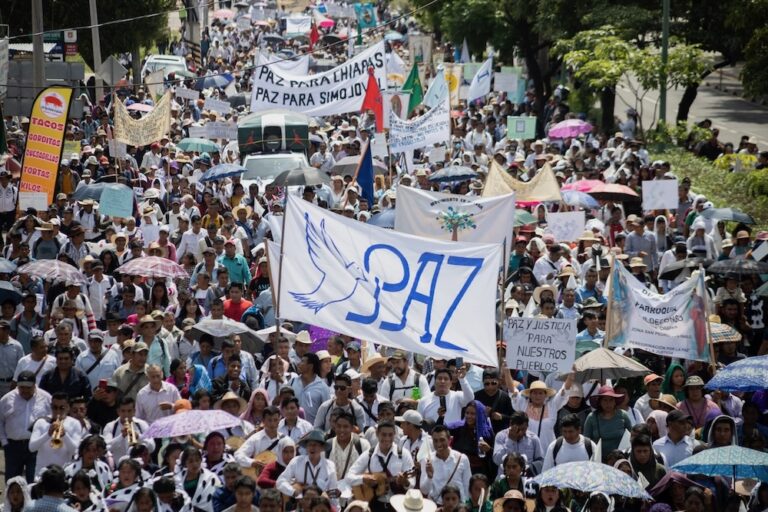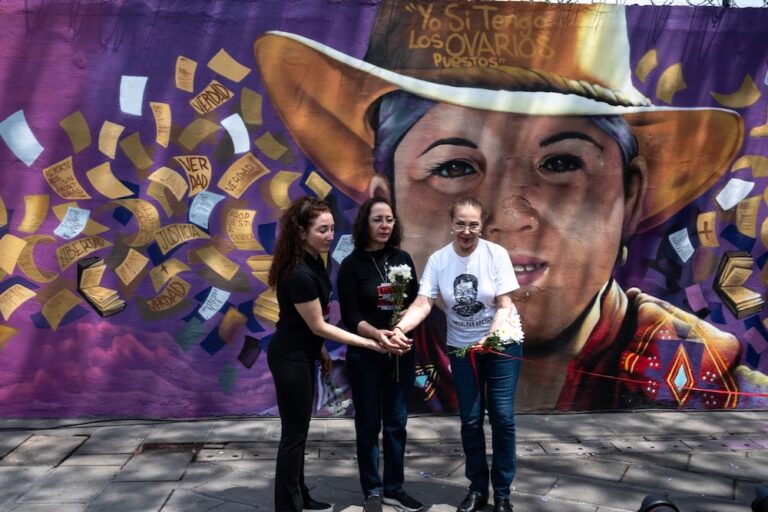Can authorities long known for their ignorance or even complicity in crimes against journalists institute legal measures that produce tangible change?
Colombia and Mexico have reputations for corruption, drug wars and impunity. But what happens when these governments put in place measures to protect freedom of expression? Can authorities long known for their ignorance or even complicity in crimes against journalists institute legal measures that produce tangible change?
Colombia protecting free expression?
When Colombian lawyer Catalina Botero took on the role of the Special Rapporteur for Freedom of Expression for the Inter-American Commission on Human Rights (IACHR) in 2008, her home country had already taken a step in the right direction. In 2000, then-President Andrés Pastrana Arango put in place the Protection of Journalists and Social Communicators Act. At the same time, journalists in Colombia were recognized as an at-risk group.
Originally, the programme included an inter-agency Regulatory and Risk Assessment Committee, which comprised many bodies including the Ministry of the Interior, as well as representatives from civil society, such as IFEX member Foundation for Press Freedom (FLIP). In 2010, the system was criticized for lacking a clear strategy for the prevention of crimes, and focusing only on the physical aspect of attacks on journalists. In 2011 the government of Juan Manuel Santos introduced the missing prevention strategy and put in place regional and federal structures for protecting human rights. These changes remain in force under the current National Unit for the Protection of Journalists.
Jineth Bedoya case recognised as crime against humanity
While the system may not be perfect – Colombia is still ranked eighth-worst in the world in the Committee to Protect Journalists’ 2014 Global Impunity Index – the September 2014 decision by the Federal Attorney General to recognise crimes against journalist Jineth Bedoya as crimes against humanity suggests that impunity is being taken more seriously than in the past. Bedoya was kidnapped, tortured and sexually assaulted in May of 2000. At the time, she was a reporter for El Espectador newspaper and in April of the same year had reported on prison riots and links between inmates and paramilitary groups.
Her case has not been solved, but this advance is monumental considering that Colombian law enforcement were likely complicit in the crime. In July 2014 the Inter-American Commission on Human Rights (IACHR) admitted Bedoya’s case against the Colombian State and will determine whether the state was in any way responsible for the events that took place in 2000.
Crimes against Mexican journalists also linked to strength of drug cartels
The issues underscored in Bedoya’s reporting, of organised crime and corruption, also plague Mexican society. As the organised drug trade has become more pronounced in Mexico, so too has the issue of impunity and crimes against journalists in the country. A 2012 report by the Center for International Media Assistance highlighted the pervasive issue of drug cartels and organised crime having spread throughout Mexico, wiping out traditional constraints on violence as criminal groups infiltrate police forces and even some media outlets. During the administration of Felipe Calderón (2006-2012) the government seemed more concerned about the international image of the country than the safety of its journalists, with one human rights critic saying the government blamed the Mexican media for “fomenting a national image of violence.”
Journalists who have tried to report on the culture of crime that has infiltrated nearly all of Mexican society have been targeted by cartels for their reporting. This has become such a dangerous topic for the media that some outlets have removed by-lines so that journalists cannot be linked to their work, while others have outright stopped reporting on sensitive topics.
Still, there has been some forward motion. In October 2012 the government presented the Federal Mechanism for the Protection of Human Rights Defenders and Journalists, based on the Colombian model, to protect rights defenders and journalists. It is overseen by the Ministry of the Interior.
The mechanism for the protection of journalists in Mexico has been criticized for being ineffective and some journalists who have been granted protection under the mechanism still continue to face threats to their physical safety. That said, Mexico is one of the few countries in the region to even pay lip service to the idea that the state should do something to stop the violent crimes against the press. In 2013 at the Knight Center for Journalism in the Americas’ 10th annual Austin Forum on Journalism in the Americas, Ewald Scharfenberg, the then-director of the Instituto Prensa y Sociedad de Venezuela (IPYS-Venezuela), said that given the situation in Venezuela, the idea that the “state would create these programs to protect journalists, who they view as the enemy” was unthinkable.
Lydia Cacho case before the UN Human Rights Committee
International mechanisms also have a role to play. In December 2005, journalist and human rights defender Lydia Cacho was detained and tortured by police after writing a book about child pornography rings, to which she had linked a local businessman. Police arrested her after the businessman accused her of defamation and libel. In 2009, Mexico’s National Human Rights Commission issued recommendations to the states involved in her detention and concluded that she had been tortured and that her basic individual rights had been violated. Despite this, her kidnappers have not been brought to justice.
This year, still fighting for justice, Cacho became the first Mexican journalist and human rights defender to take her case to the United Nations Human Rights Committee. In October, with the support of ARTICLE 19’s Mexico and Central America office, she presented her case to the committee, which is responsible for monitoring compliance with the International Covenant on Civil and Political Rights, ratified by Mexico in 1981. Despite all the challenges to free expression and the systemic impunity in Mexico, ARTICLE 19 said that with Cacho bringing her case to the UN, they were hopeful that an international body may actually force Mexico to deliver justice for the journalist.
Honduras learning from its neighbours
But strengthening measures in one region can have unintended consequences in others. As some countries have implemented positive changes to try to combat violence associated with drug trafficking, perpetrators of the crimes have moved to countries with weaker rule of law. Still, those countries have the advantage of being able to construct their own laws, when drafted, with the knowledge of what has worked—and hasn’t—in other countries.
In 2012, Honduras started the process of constructing a programme for protecting journalists and in June 2014 the congress passed a law, still pending final approval, for the protection of journalists. The programme is expected to comprise measures both for the protection of journalists and for the prevention of crimes against them. By including preventative measures, Honduras will be starting out with a more complete system than Colombia did, and it is long overdue. The country is currently ranked in the bottom third of the world’s countries (129 out of 180) on the Reporters Without Borders (RSF) press freedom index, and has seen a sharp increase in violence in recent years, most dramatically since the coup d’état in 2009. It is also the fourth deadliest country for journalists in the Americas.
Impunity still a priority
In October 2014, as she reflected on her six years in office, Botero named violence and impunity as the top challenges in the region. Edison Lanza, the Uruguyan journalist who now holds the IACHR Special Rapporteur for Freedom of Expression post, knows well the responsibility he is inheriting. He said that while his office has the power to request States provide at-risk journalists with measures to prevent further harm, his task is getting “the States to take ownership of these mechanisms”.
While the mechanisms have not yet led to the eradication of violent crime or impunity, they have produced incremental change in the region, with programmes for protecting journalists now in place in Colombia, Mexico, Honduras and Guatemala. While ending impunity is a top priority for free expression groups working in the region, it could be years before we see a real increase in the number of crimes solved and a weakening of the culture of impunity. Nonetheless, the impact of these measures on the Americas as a whole is palpable: longstanding cases are being taken seriously, international bodies are pressuring countries to make change, and governments are learning from each other.
Erin Woycik is the IFEX Section Editor for the Americas.



